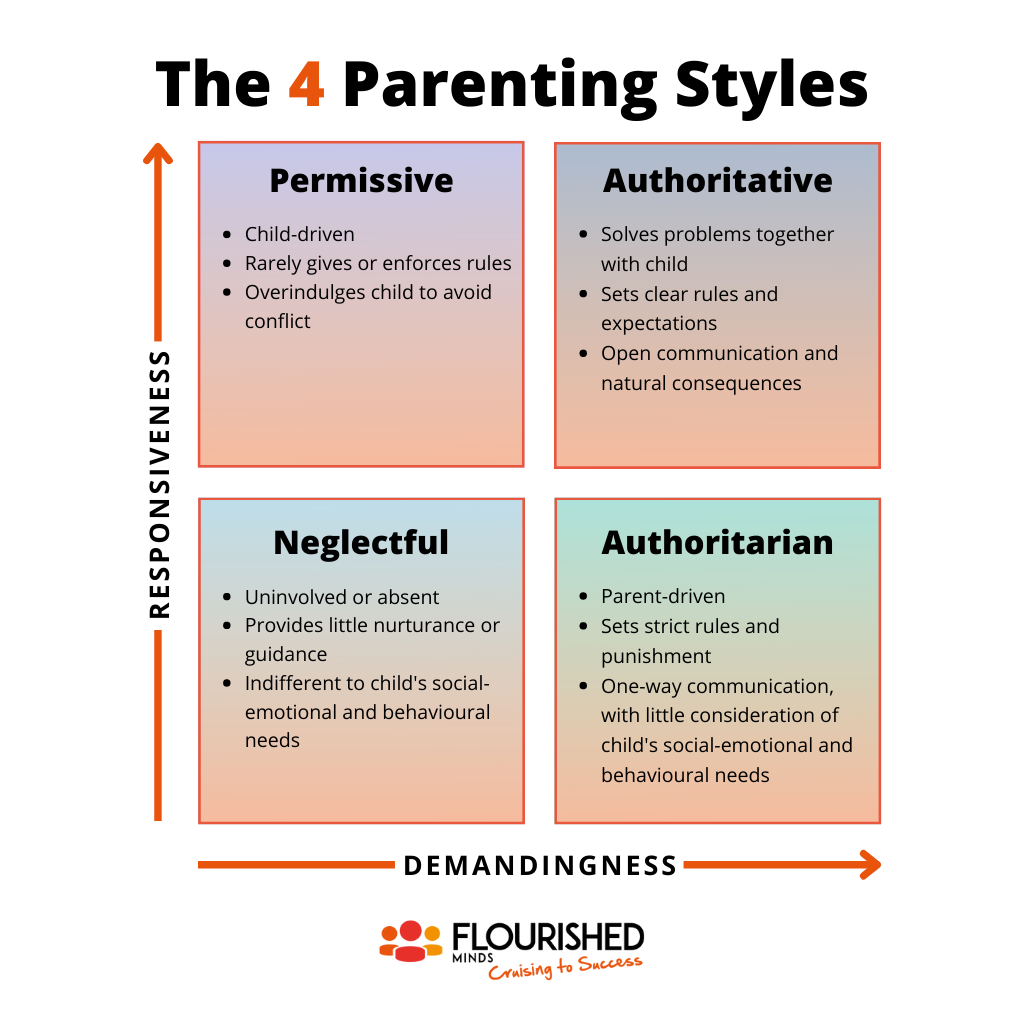As summer approaches, it is often a time when parents get to spend more quality time with their children.
This is a great way to deepen your relationship, learn more about your child and establish new, stronger bonds.
However, lots of time together can also bring tension, conflict, and differences of opinion.
If you’re looking to navigate your summer together and improve constructive communication, it can help to understand your go-to parenting style.
What are the main parenting styles?
Research from psychologists including Baumrind and Gottman, suggests there are four broad parenting styles:
Authoritarian
This style often imposes rules and can often be very non-negotiable.
This style generally causes children to want to push the boundaries set and rebel against their parents.
Authoritarian parents are likely to say:
- “Because I said so!”
- “It’s for your own good”
- “It’s my way or the highway”
Children with authoritarian parents might feel a lack of flexibility, warmth or understanding from their parents.
They may also think that the respect they pay their parents isn’t returned as they don’t make allowances or deeply listen to their child.
Reframe: How can I show my child is listened to and respected? Should I back off and let them make their own decision in this case?
Permissive
This parenting style is very nurturing and is often seen as parents being too easy on their children.
There can be a lack of boundaries, children can often make every choice and may come across as being spoilt, or children can feel like they should always get their own way.
Permissive parents are likely to say:
- “You’re my best friend”
- “Have whatever you like”
- “Okay, do whatever makes you happy”
Children with permissive parents may struggle to understand the consequences of their actions. There is often a closeness between children and parents with a massive level of openness, but this is often at a friendship level.
Reframe: What boundaries could help give my child structure, safety and a way to learn about the real world?
Uninvolved
This style of parenting is a very ‘hands-off’ approach. Sometimes, these parents may have anxiety or depression, making them feel adrift. This type of parenting is similar to permissive parenting, but there isn’t a friendly closeness.
Uninvolved parents are likely to say:
- “Do what you want, I don’t care”
- “They’re self-sufficient; they don’t need me”
- “I’m a rubbish parent; I don’t feel connected to them”
This parenting style can often occur when a parent becomes overwhelmed or worn out.
It may not be the go-to parenting style, but even very nurturing parents may slip into this role after a tough day.
Reframe: How can I best manage my energy to give my child the support they need? Do I need additional support?
Authoritative
Not to be confused with an authoritarian parent, an authoritative style is a balance between permissive and authoritarian.
Parents impose boundaries, which can help children feel safe, but there is flexibility, openness and discussion around rules, so they’re understood and with the best intentions.
Authoritative parents are likely to say:
- “I think this is best, but I welcome your input”
- “I’d like you to help at home; do you think that’s fair?”
- “What compromise would be best for everyone?”
This type of parenting welcomes input and feedback, but to work effectively, parents need to be willing to listen without distractions and keep a calm tone during discussions to keep the conversation constructive.
Reframe: Am I compromising to keep the peace rather than taking time to listen to their concerns deeply?

Which Is Your Go-To Parenting Style?
While you may associate more strongly with a particular style, it is important to know that you can slip in and out of different types depending on the situation.
It can help to know which kind comes out in heated or difficult situations.
Do you:
Show a frustrated, dejected uninvolved style where you remove yourself from the situation because you avoid conflict?
Create compromises to keep everyone happy as an authoritative parent but fail to listen to what your child is asking or unhappy about?
Have to have the final authoritarian word to end the conversation, avoid escalation, with your way being final?
Just let your child have whatever they want as a permissive parent because you can’t bear to see them upset?
When you’re aware of your style in high-stress situations, you can begin to pull on different types to create more balance.
Remember, there is no ‘perfect parent’ and no ideal parenting style.
But, increasing your self-awareness and understanding of how you could perhaps use different techniques to reduce the levels of conflict in your family will help you to be the best parent you can be, particularly during different times
If you’re looking for a more harmonious household this summer, what style would you prefer to emulate, and what could you do differently?

